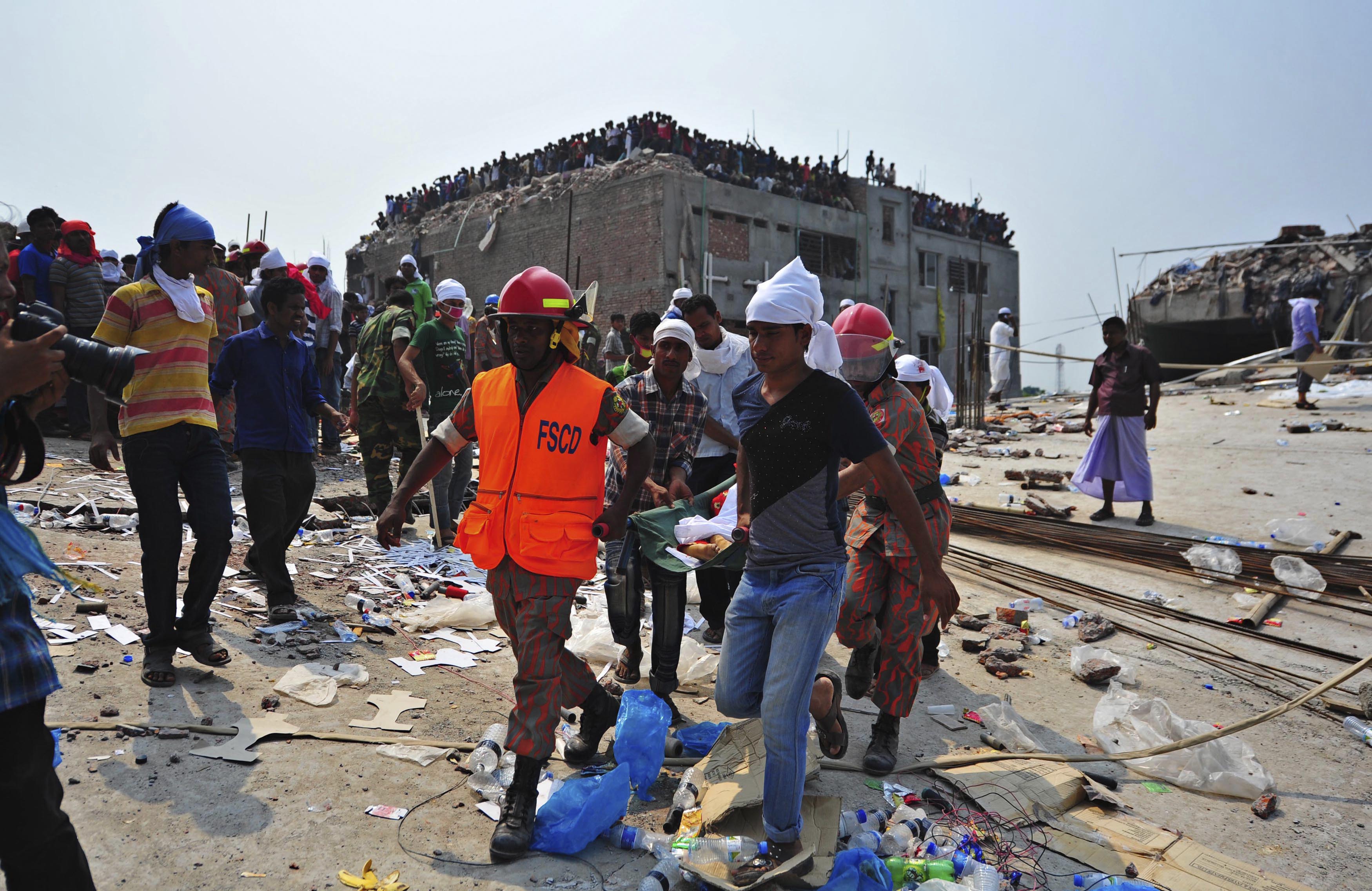BBC’s Panorama highlights importance of Bangladesh Safety Accord

On Monday night, the BBC television programme Panorama investigated how our clothes – including those of some of the big high street brands – are really made by visiting Bangladesh’s garment factories.
The report says it found evidence of shocking working conditions and an industry that, it says, “puts profit before safety.”
UNI General Secretary Philip Jennings said, “Panorama should be applauded for this important piece of investigative reporting. It draws further attention to the terrible, often life-threatening, conditions faced by workers in Bangladesh’s garment sector.
“Unfortunately, as Panorama saw first hand, the abuse of human rights is rife in the garment industry and this is something we’ve been telling the world for not only the last six months but years.”
In the wake of the Rana Plaza factory collapse that killed more than a thousand garment workers in Bangladesh in April, IndustriALL Global Union and UNI Global Union along with leading NGOs drafted the Accord on Fire and Building Safety in Bangladesh.
IndustriALL, UNI and our NGO partners produced a legally-binding agreement for fire and building safety in Bangladesh. Today, nearly 90 global brands including British names such as Tesco, Primark and Marks and Spencer, have signed up and 1,800 factories will be covered by independent safety regulations. The latest brand to sign up is River Island.
Jennings said, "We hope that the programme brings further attention to the plight of the Bangladeshi garment workers and will drive more brands to do the right thing and sign the Accord.”
Garment workers in Dhaka are currently taking strike action to demand an increase in the minimum wage. They currently earn around $38 a month which is half what Cambodian garment workers earn.
The Bangladeshi workers are looking for a raise to bring them up to $103 a month which would allow them to provide for their families.
IndustriALL General Secretary Jyrki Raina said, “The Bangladeshi garment workers have little choice but take this industrial action. They have been ignored for too long and we’ve seen the consequences with the Rana Plaza collapse, the Tazreen fire and other cases where penny pinching has led to disaster.”
Raina added, “These workers like workers all around the world deserve a living wage. We’re talking about thousands of mainly young women supporting a $20-billion garment industry. We are supporting them for their fight for fair pay and safe working conditions.”
Here is the current list of brands signed up to the Accord:
Abercrombie & Fitch, Aldi Nord, Aldi South, American Eagle Outfitters, Inc., Arcadia, Auchan, Belotex, Benetton, Bestseller, Bonmarche, Brands-Fashion, C&A, Camaieu, Carrefour, Casino Global, Charles Voegele, Chicca, Comtex, Coop Danmark, Cotton On, Dansk, Daytex, Debenhams, Distra, DK Company, El Corte Ingles, Ernstings's Family, Esprit, Fast Retailing Co. ltd, Fat Face, Forever New, Gstar, H&M, Helly Hansen, Hema, Hemtex AB, Herding Heimtextil, Hess Natur-Textilien GmbH, Horizonte, Inditex, JBC, Jogilo, John Lewis, Jolo Fashion, Juritex, KappAhl, Karstadt, Kik, Kmart (Australia), LC WAIKIKI, Leclerc, Lidl, Loblaws, Mango, Marks and Spencer, Metro, Mothercare, Multiline, N Brown, New Look, Next, O’Neil Europe BV Otto Group, Primark, PUMA, PVH, Rewe, River Island S Olivier, Sainsbury, Schmidt Group, Scoop NYC / Zac Posen, Sean John Apparel, Shop Direct Group, Speciality Fashions, Stockmann, Switcher, Target (Australia), Tchibo, Tesco, Texman, Topgrade International, V&D, Van der Erve NV, Varner Group, Voice Norge AS, We Europe, Zeeman

